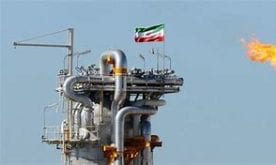iranintl – US lawmakers have been lining up to offer solidarity and support to Iranian Americans on the anniversary of the killing of Mahsa Amini and the nationwide protests.
Amini, 22, was arrested in Tehran because the police felt her hair wasn’t covered properly. She was hit on the head in custody and died in hospital on 16 September 2022.
“Her death was, and remains, a tragedy,” said Senator Bob Menendez, Chairman of the Senate Foreign Relations Committee in a statement, “her murderers’ names will be forever written in the blackest pages of history.”
The ‘state murder’ of Mahsa enraged Iranians, who took to the streets across Iran. The regime employed brutal force to crush the protests. More than 500 were killed, many more injured. Tens of thousands were arrested.
“The international community owes it to them to never let the regime get away with the crimes committed during its brutal crackdown,” Senator Menendez’s statement read. “It owes them our full-throated support as the regime continues to repress the Iranian people to this very day because their bravery is nothing short of inspiring.”
Menendez’s words have been loudly echoed in the Capitol. Senators and Representatives, Republican and Democrat, have spoken or issued statements in support of Iranians.
This is partly because last year’s protests in Iran were simply too big, too consequential, to ignore. Many felt it was ‘the beginning of the end’ of the Islamic Republic.
The recent surge in interest in Iran could also be attributed to party politics in the US. Biden’s Iran policy is unpopular and therefore an easy, efficient attack-line for his political opponents.
But there’s another dynamic at work in Washington: young, educated activists of Iranian origin, inspired and energized by Woman, Life, Freedom movement, are taking it upon themselves to influence US policy towards Iran.
Their efforts have been on display at dozens of protests in major US cities in the past year, and more recently in garnering support for the Mahsa Act in the Congress.
“Against all odds, a new generation of Iranian-Americans is making a positive impact on Capitol Hill, one step at a time,” Sarah Raviani posted on X (formerly twitter) after the bill passed the House on 12 September.
She had spent the preceding days calling Representatives and encouraging others to do so. A week later, she was in Los Angeles, speaking at a rally to commemorate the killing of Mahsa Amini and the beginning of the 2022 protests.
Raviani is only one example, perhaps more prominent than many on social media, but only one among the many who put in the time and effort to effect change.
Scanning through their social media, the new-found army of Iranian-American activists seem to have differences in their background, in their outlook, in their political orientation in the US even. But one wish bonds them together: the end of the Islamic Republic in Iran.
As the United Nations General Assembly gets under way this week, many activists have momentarily turned their attention away from Washington to focus on Iran’s President Ebrahim Raisi, who arrived in New York on Monday morning.
“Absolutely speechless,” wrote one activist, “Ebrahim Raisi will not only be visiting the US to attend @UN, but will be hosting several private meetings & events throughout his stay.”
“This is the same President that was formerly dubbed the Hanging Judge”, wrote another. “This is the President of the same regime that has been systematically hanging protesters over the past year, r*ping & torturing them in prison, and taking out their eyes.”
Several rallies are planned by Iranian-Americans to protest and raise awareness about the Islamic Republic and Raisi. And grassroots activists are the heart of it once more.
Long gone are the days when National Iranian American Council, NIAC, was the only act in town. They traditionally were advocating rapprochement with the Islamic Republic and an end to sanctions. They may still have their connections in Washington, but they seem to have lost their footing within the Iranian-American community.
Any sign of connection with the representatives of the Islamic Republic comes at a hefty price these days.
Same time last year, some successful Iranian-Americans accepted invitations to an event with Raisi. There was a huge backlash within the community, which made most of them apologize and distance themselves from the Islamic Republic.
This year, there seems to be more invitations. And the new army of Iranian-American activists are watching.
 Shabtabnews In this dark night, I have lost my way – Arise from a corner, oh you the star of guidance.
Shabtabnews In this dark night, I have lost my way – Arise from a corner, oh you the star of guidance.



